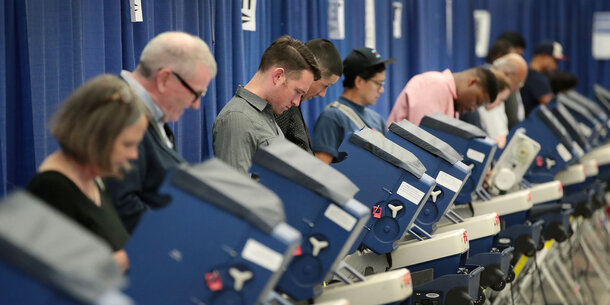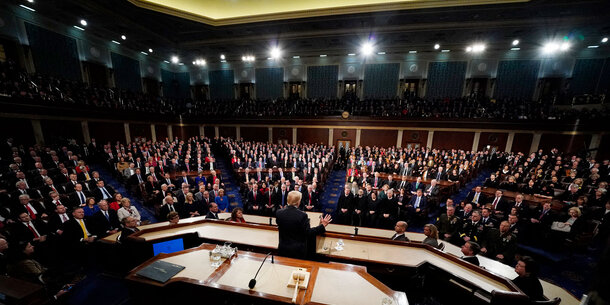History doesn’t repeat. But sometimes it rhymes.
Sen. Ted Cruz and the others who aim to overturn the 2020 election point to the aftermath of the 1876 presidential election as a model. Democrat Samuel J. Tilden, just one electoral vote shy of winning the presidency, declared victory. Republican Rutherford B. Hayes did the same, despite having 19 fewer electoral votes. Twenty electoral votes from four states remained unresolved. To solve the dispute, Congress appointed an electoral commission. “We should follow that precedent,” Cruz and company declared. (One big difference, of course, is that election results were actually in doubt, whereas now all states have certified electoral votes.)
But the 1877 precedent is the political equivalent of a Freudian slip, conveying more truth than intended. It produced one of the ugliest and most shameful moments in American history.
As I described in my book, The Fight to Vote, “Secret negotiations unfolded at the Wormley Hotel in Washington, ironically owned by a free Black man. Hayes’s representative arrived to find the deal already settled: the Republicans would keep the White House, and the troops would be withdrawn from the South. He sanctimoniously declared he could not support anything that would seem ‘a political bargain,’ then put on his hat and left. Piety aside, the bargain held. Reconstruction was over. So was the effort to protect Black voting rights.” The corrupt deal led to a century of segregation, disenfranchisement, and brutality.
This didn’t happen immediately. In fact, three years later, two-thirds of Black men still voted. Even in the 1890s half of them still voted in high-profile governor races in the former states of the Confederacy. Black voters still outnumbered whites in Mississippi. A populist, cross-racial coalition of workers and farmers was rising. So states passed Jim Crow laws and constitutions — with provisions, such as felony disenfranchisement laws, that still have a crushing racial impact today. In Alabama, which once had the most progressive constitution, Black voting rates fell from 180,000 to fewer than 3,000 between 1900 and 1903. Federal courts refused to enforce voting rights.
On Wednesday, on the floor of Congress, Sen. Josh Hawley, Cruz, and Trump’s other enablers seek, in effect, to erase the votes of Black and Latino citizens in the cities of the key swing states that decided the election — Atlanta, Cleveland, Philadelphia, Detroit. Their intent is not subtle. The 1877 compromise ended Reconstruction. Since 1965 and the civil rights laws, we’ve been living in what scholars call the Second Reconstruction. It’s now at risk.
In one way, this time is quite different. We know who won. Joe Biden and Kamala Harris prevailed, handily, with the biggest share for a presidential challenger since FDR in 1932. Indeed, despite the pandemic, despite voter suppression, the 2020 election was among the smoothest and most secure in American history. Turnout soared to the highest in over a century. That was made possible because many states expanded voting options, with an astonishing 101 million people voting early or by mail.
We can make these changes and others permanent, positive features of the American political scene. On Monday, House Speaker Nancy Pelosi and other lawmakers introduced H.R. 1, the For the People Act. If enacted, it would be the most important democracy reform since the 1960s, when the country finally threw off the legacy of the compromise of 1877.
The Brennan Center is proud to have helped craft many of the reform proposals in the measure — automatic voter registration, small donor public campaign financing as well as redistricting reform and restoration of voting rights to people with past criminal convictions nationwide. This new version of the legislation will address problems that arose last year, too. (For example: states should count mail ballots before Election Day!)
Let’s learn the lessons of 1877 and 2020. When we make it possible for people to have their voices heard, they will do so by the millions. That will be the best legacy of this ugly moment.



